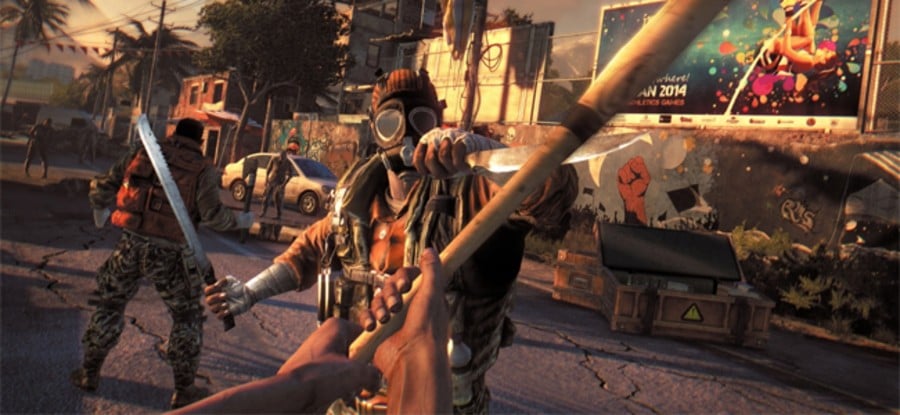
Once upon a time, gaming was quite a disposable pastime. You'd shell out for the latest blockbuster from your nearest store, run through it a couple of times, and then trade it back in – often in exchange for the next best thing. And so the cycle would repeat. However, the PlayStation 3 generation mixed things up, with the introduction of downloadable content and online multiplayer encouraging players to hold onto their Blu-rays for a little longer. And now with the PlayStation 4, it seems like some developers have mastered the art of keeping gamers engaged over a much longer period of time – but should more AAA titles be taking note?
DriveClub was a bit of a disaster when it deployed almost a year ago, but it's practically adapted beyond recognition now. The paltry day one campaign is almost four or five times larger than it was at launch, while its fleet of included vehicles has also multiplied. But while a lot of these improvements have been made available through its stellar Season Pass, it's also been buoyed by free upgrades; there are more tracks, modes, and multiplayer options available than ever before – and they're free for anyone that owns a copy of the game. Back when a handful of Evolution Studios employees were sadly laid off in March, platform holder Sony said that it would be focusing on furthering the release "as a service going forward". But it's not the only one to adopt this tactic.

For example, despite packing over 500 hours of content out of the box, The Witcher 3: Wild Hunt has also gone from strength to strength since its May launch. The game's most recent patch may have stomped a selection of bugs, but it also enhanced the experience with the addition of storage boxes and a brand new movement method for protagonist Geralt. Furthermore, developer CD Projekt RED has been keeping the PlayStation Store flush with various free add-ons, ranging from alternative outfits all the way through to entire new quests. And it's pledged a couple of major expansions – in addition to further free improvements across the board – for the future.
The game development schedule is changing, with more and more resources being attributed to post-release support than ever before
There are also titles like Dying Light, a game which has incorporated fresh modes, features, and even equipment since its launch in January. And, rather than sit on its hands while interest in its surprisingly enjoyable open world adventure fizzles out, the studio's ran several game changing promotions for the parkour-heavy package – the super strength event that took place over April Fools' Day being a particular highlight. This went above and beyond the usual Double XP window, giving those that have seen and done everything in the game a reason to return – if only for the silliness that the tweaked damage parameters provided.
Of course, a studio can't do any of this without the appropriate planning. It strikes us that the game development schedule is changing, with more and more resources being attributed to post-release support than ever before. But while this may prove a headache from a management perspective, we reckon that it's a positive thing. Certainly, there's a lot of scepticism pointed at Season Passes and DLC – but when executed correctly, they can result in much bigger and better games. But the real beauty of supporting a title like a service is that it allows a studio to react to the demands of its fans. Dying Light aficionados were clamouring for a harder difficulty tier, and Techland had the resources in place to deliver – for free.

It's a paradigm shift for publishers, but with blockbuster production budgets increasing, it's becoming more and more important for developers to keep their active playerbases engaged. If you consider a game like The Order: 1886, a six hour single player escapade with very little replay value, it disappeared in the blink of an eye. Now that's not to say that great narrative-driven experiences can't exist, but they need to find hooks to keep players coming back; it's rumoured that Batman: Arkham Knight will get an additional sequence this coming Hallowe'en, and who knows what else is buried within the release?
It's all about keeping things feeling fresh. A title should never skimp on launch day content, and we're not advocating the idea of a release being below par on day one – but if a great game can get even better with post-release updates and expansions, then isn't that a net positive for everyone involved? Gamers get even more bang for their buck, publishers secure a new set of features and functions to flog, and developers benefit from the word of mouth that proper post-release support provides. Sure, we may be simplifying the challenges of keeping a title up-to-date, but if some outfits are already doing it, then maybe it's time that the rest of the industry caught up.
Do you like the idea of AAA titles that are frequently updated and revised over time, or do you prefer to play a game on day one and then move on? Has the post-release support in some of the abovementioned titles prompted you to keep playing them for longer than you expected, or do you tend to ignore the addition of new modes and features? Freshen up in the comments section below.
Would you like more games to adopt a service-like approach? (46 votes)
- Yes, I want a reason to keep returning
- Hmm, I’m not bothered
- No, I rarely return to a title I’ve finished
Please login to vote in this poll.





Comments 15
It's a better model for sure, rather than skinning us alive for packs of useless content. That said, I certainly don't want base games to become smaller as a result, with developers dishing out the rest later. The backlash to the new Hitman is proof of a concept gone too far, for example.
What I want to see is the end of paying for unimportant things such as clothing, weapons and supplies. I am okay about paying for a decent expansion at the right price. The Witcher and CDPR have got it broadly right and should be the industry standard.
I am not against extras being dished out for achievements in games such as bits of the UPlay pass in AC:Unity - a game I might finish one day.
I will definitely be buying the expansions to both Bloodborne and The Witcher 3.
One thing I wouldn't do would be paying money for different costumes as you could in FF13-2. That is just fleecing your customers.
It has to be a case by case basis. Any sports or racing game should be, but that makes too much sense. Could you imagine the jump in quality if Fifa was a new game every 4 years (it could coincide with the world cup) and was just iterated on in between by a smaller team.
Really depends on the genre and how fun the game is. A crappy game that you didnt like playing through once, this wouldn't make me play more. just download it, play it again for like 5 minutes then never touch it again, however.
If its a game like Dark Souls or The Witcher, or GTA, or something else, then yea im all for it. GTA and the Witcher are doing this, and it keeps making me come back to them.
So this is really more based on Genre and/or player preference.
All in all however, i think yes they should do this more. This is how DLC should be in my opinion.
I'm personally ok with microtransactions for unimportant items like costumes etc. - I just don't buy them. It's the important ones I would be bothered by like expansions, which need to be half good to be even considered.
However, I've voted no because I rarely go back to finished titles. Heck, I hardly have enough time to play all the new games I want to play! One thing I know for sure is I will never pre-order a game or buy one at launch precisely for the reason it's become a service. You get better value for money if you buy later, bugs fixed, worlds expanded etc. The only thing you miss is getting hyped with the community of gamers at the same time, but again I'm lagging behind with so many games that it's a trade off worth making. Witcher is a good example, only now I consider it being playable again with storage issues solved. Games need to be fun and making them that way takes time if studios are experimenting or whatever. I am happy to wait for new games to not be so new but at least be assured I'll be getting a decent experience out of them worth paying (less) for.
I love the way CD projekt Red are going about the updates and free DLC for the Witcher. It makes sure I will support the title and the developer in the future. Hopefully other developers will follow their example.
@BLPs The poll probably could have been better worded. That's my bad. Obviously if a game is already great then that's reason enough to return, for sure. I guess what I meant was, would a service-like approach make you more likely to come back or not?
One aspect of this that I can certainly get on board with, is that it could be used to lengthen the development cycle of subsequent entries in the series. If the bigger players did this, and gave us a full new game every 2-3 years instead of yearly, I think we could see a serious leap in the quality of new releases, as well as receiving fantastic support for existing stuff. I really can't see this customer focused model taking off on a wider basis though. Too many big publishers can't see past the money.
Yes, but CD Projekt Red's standards should be followed. The Witcher 3 is a love letter, free dlc and respectful paid dlc are the way to go. I can pay for more content, but I won't pay 15 bucks for a new map or a new skin. New maps and skins should be cheap or free.
I completed Witcher and sold it and don't regret it I do this with all my SP game's I never even bothered with the free DLC you got with the game, cosmetic rubbish and a waste of time, the game was fun though. This game only cost me £7 to play, a pound a day for the week I kept it I had fun but SP game's only offer so much to me. The only game's they should really bother providing a "service" for are multiplayer game's I really don't see the point in SP game's getting a service.
Please, no dlc at all.
No, I want to buy a finished game. Thanks.
I am not against DLCs in online services like Driveclub or upcoming Street Fighter 5, but in single player games, please no. I like single player games to be completed and patched to perfection on launch day.
And I hope everyone understand that those stupid free beards for Witcher 3 are more like marketing move, than genorosity. They were invented for 2 things - PR and for people to not sell the game right away after completion.
Evolution have definitely got it right with Driveclub, but CD Projekt Red's free DLC feels like it was taken from the main game. But I am sure there main story DLC will be ten times better, because at the end of the day we are paying for it.
@get2sammyb this will actually make your reviews irrelevant - who wants that?
On a serious note with Destiny and the tell tale games I'm worn out waiting for content. I couldn't even tell you what's going on with tales from the borderlands right now. With twd they got away with the long waits due to it being new. But I'm not sure anymore. With Destiny they are lucky there's been a dearth of good shooters, but the gambling mechanics bother me as I dont have an addictive personality - so I end up running around with lame gear. Im unlikely to go near either games at launch going forward as the waiting game is not for me.
Tap here to load 15 comments
Leave A Comment
Hold on there, you need to login to post a comment...